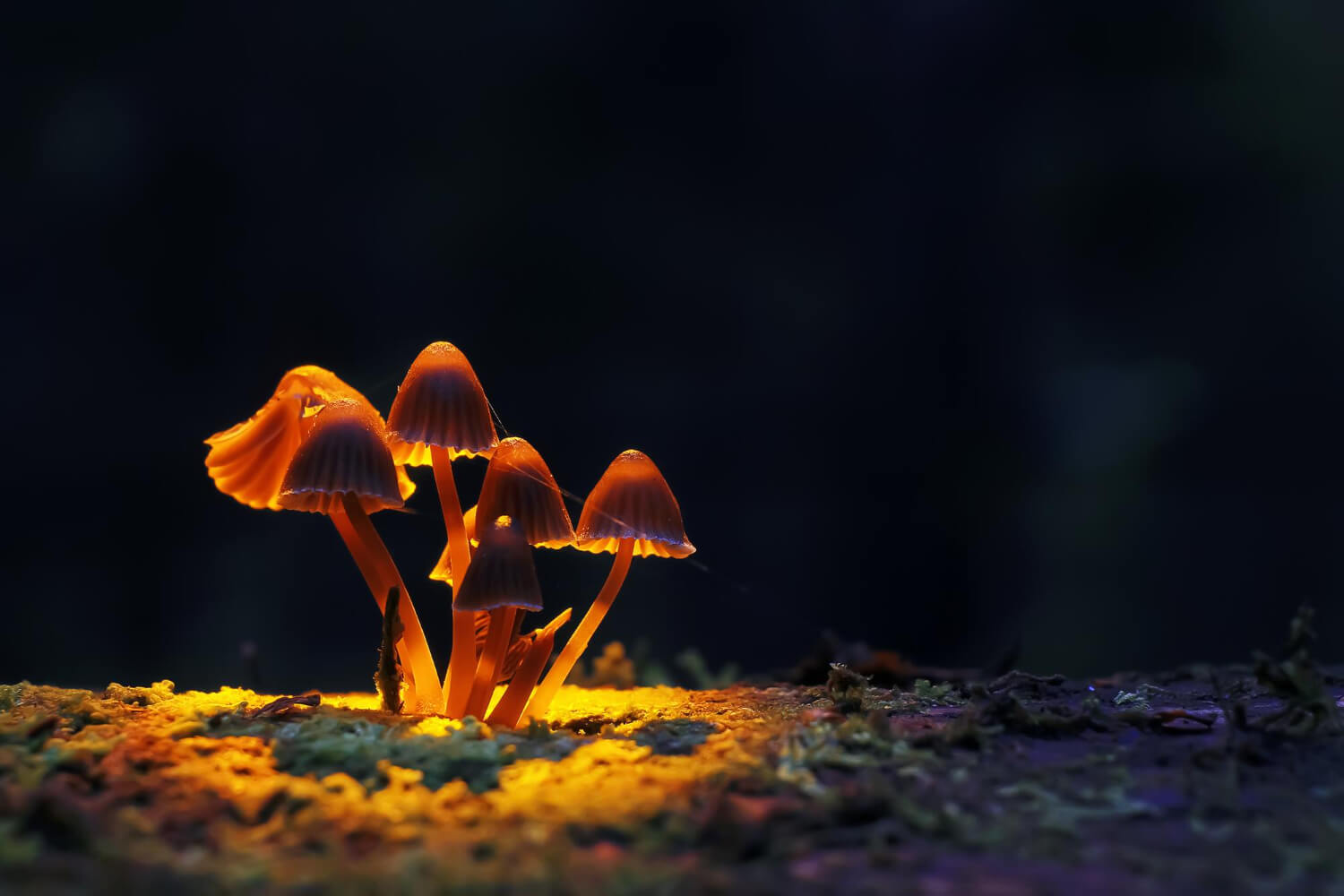Researchers from the University of Utah and the Natural History Museum of Utah have recently published a groundbreaking study in the Proceedings of the National Academy of Sciences. The study reveals that magic mushrooms, known for their psychoactive compound psilocybin, were present 65 million years ago. Interestingly, this coincides with the extinction of dinosaurs, shedding light on the ancient history of these widely used fungi.
Amycetes Curator Sheds Light on the LargestStudy of Psilocybe Genus
The latest research has been dubbed as the most extensive genomic diversity study ever conducted for the Psilocybe genus or mushrooms that produce psilocybin. The study analyzed various specimens, including 39 species that had never been genetically sequenced before.
The authors of the research used advanced bioinformatics techniques to examine the primary psilocybin biosynthetic gene cluster and other key patterns, pointing towards an ancient split in the genus around 57 million years ago. This evidence suggests two independent acquisitions of psilocybin throughout its evolutionary history.
Wood Decomposition as the Ancestral Ecology of Psilocybe
One of the most intriguing findings in this research is the revelation that wood decomposition was “the ancestral ecology of Psilocybe.” Over time, the ability to produce psilocybin seems to have transitioned from some types of fungi to others, indicating a complex ecological journey spanning tens of millions of years.
Some researchers speculate that interaction with termites might have played a role in exerting selective force for the evolution of psilocybin, possibly serving as a modulator of the symbiosis between the two.
Breaking New Ground in Psilocybin Research and Innovation
This extensive diversity study not only uncovers new information about the ancient history of psilocybin mushrooms but also has potential implications for future research, innovation, and mental health treatments.
With a psychedelic renaissance currently underway, there is increasing interest in the therapeutic applications of magic mushrooms, particularly in the context of depression, anxiety, and other psychological disorders.
Impact on Treatment Approaches and Therapeutic Uses
Understanding the evolutionary history of psilocybin-producing fungi could pave the way for more targeted and effective treatment approaches, taking into consideration their ecological niche and interactions with other organisms. This might lead to the development of innovative therapeutic strategies that harness the full potential of this naturally occurring substance, all while shedding light on potential side effects and risks associated with prolonged use or misuse.
Implications for Policy and Regulation
Insights from this research could also influence policymakers and regulators in their efforts to create evidence-based frameworks surrounding the responsible use of psilocybin-containing products. As we continue to uncover the many layers of this ancient fungus, it becomes increasingly evident that sound policies based on scientific findings are necessary to ensure safe access and promote positive outcomes among users seeking its benefits.
Expanding the Horizons of Psychedelic Science
This landmark study provides valuable information on the complex evolutionary past of psilocybin mushrooms, dating back 65 million years to the time when dinosaurs roamed the Earth. By understanding how these organisms have adapted and evolved over such an extensive timescale, researchers can better grasp the processes underlying their unique biological properties and the reasons behind their enduring presence throughout human history.
Such knowledge contributes to the ongoing advancement of psychedelic science, enabling further investigation into the therapeutic potential of psilocybin and related compounds. With a more nuanced understanding of their ancient origins, scientists, medical professionals, and policymakers can work together to unlock the mysteries surrounding these intriguing fungi and support a continued psychedelic renaissance.





